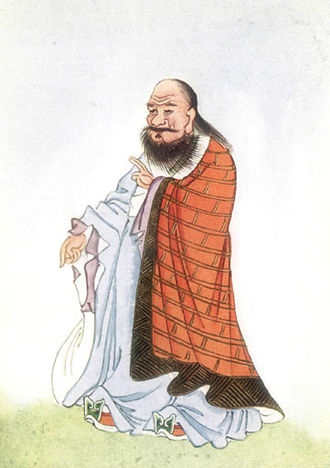From Afropedia.world
| ←Author Index: La | Laozi (6th century BCE–6th century BCE) |
| Laozi (Chinese: 老子; pinyin: Lǎozǐ; Wade-Giles: Laosi; also Lao Tse, Lao-Tzu, Laotze, Lao Zi, Lão Tử, and other variations) was a philosopher of ancient China and is a central figure in Taoism (also spelled "Daoism"). Laozi literally means "Old Master" and is generally considered an honorific. Laozi is revered as a god in religious forms of Taoism. Taishang Laojun is a title for Laozi in the Taoist religion, which refers to him as "One of the Three Pure Ones". |

Laozi
Works
- Tao Te Ching (Traditional Chinese 道德經, Simplified Chinese 道德经; also transliterated The Tâo the king, Dao De King, Dao De Jing) (also known as Lǎozǐ Dàodé Jīng (老子道德經), Daode Zhen Jing (道德真經 "True Classic of the Way and the Power"), and the Wuqian wen (五千文 "Five thousand character [classic]")) (dated to the 6th Century BCE)
- Tao Te Ching (1891, translated by James Legge, published in Sacred Books of the East, Vol 39).
- Laozi (Wikisource Translation) (translation primarily a 2007 work by User:Eng Tiong Tan)
- Laozi (Wikisource translation)
This work published before January 1, 1923 is in the public domain worldwide because the author died at least 100 years ago.
|
Lua error in Module:Authority_control at line 8: attempt to index field 'i18n' (a nil value).
ca:Autor:Laozi cs:Autor:Lao-c' es:Laozi fi:Laotse fr:Auteur:Lao Zi it:Autore:Lao Tzu ko:저자:노자 pt:Autor:Lao Tzu vi:Tác gia:Lão Tử zh:作者:老子